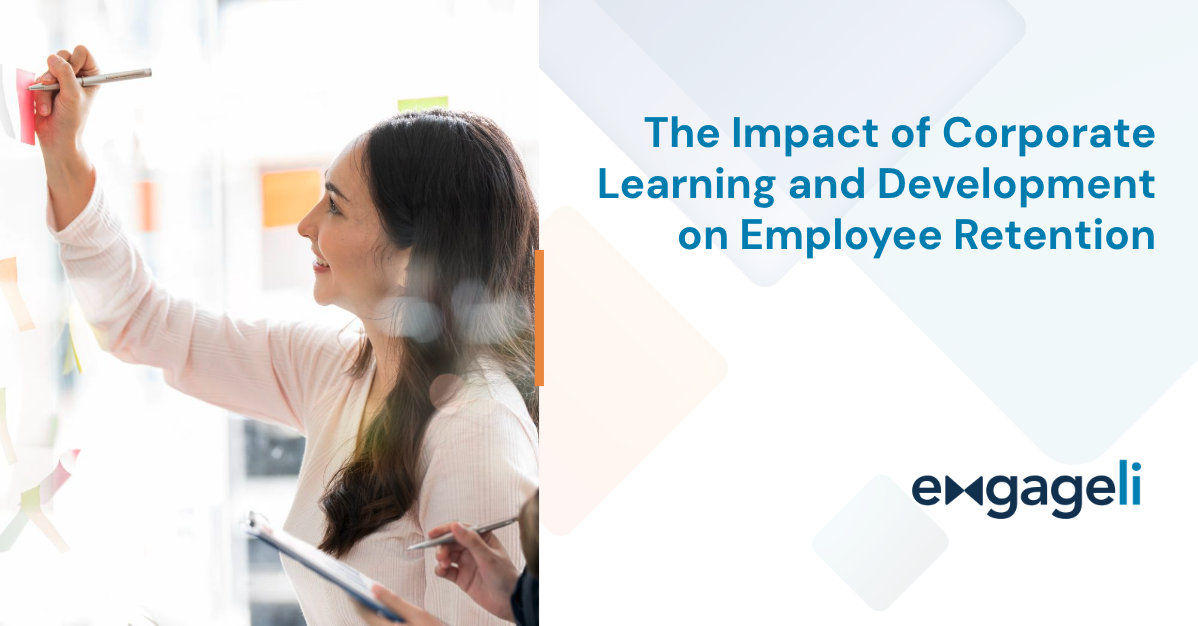In the fast-paced world of business, where competition is fierce and talent is sought after, organizations face a daunting challenge: retaining top-performing employees. While many strategies can be used, one secret weapon can truly set successful organizations apart. It's time to unlock the future of L&D and discover how it holds the key to employee loyalty and engagement.
Increasing Employee Satisfaction and Loyalty
When organizations prioritize ongoing training and development opportunities, employees are empowered to enhance their knowledge, skills, and abilities. This enables them to perform their roles more effectively and efficiently, leading to a sense of achievement and fulfillment. According to a survey from the Association for Talent Development (ATD), 9 out of 10 surveyed employees say L&D opportunities are vital to their job satisfaction.
With the rise of remote training, business leaders are seeking new ways to support collaboration and togetherness for their teams. It’s difficult to cultivate a magnetic work culture when people feel isolated. Corporate learning tools can provide a powerful solution for companies seeking to foster employee satisfaction through community-based learning.
Investing in the growth and development of employees through L&D strategy demonstrates a company's commitment to their professional advancement and success. L&D programs provide opportunities for acquiring new skills, expanding knowledge, and developing talents. As a result, employees feel valued and appreciated, leading to higher levels of engagement and loyalty overall, thus higher rates of retention.
Cultivating a Learning Culture Within Your Organization
To truly leverage the benefits of L&D for employee retention, it is essential to cultivate a learning culture within the organization. This can be achieved by integrating continuous learning into evaluations, recognizing learning achievements, promoting collaboration, and showcasing leadership support. Online L&D training allows employees to engage in self-directed learning at their own pace and from any location, further incentivizing their growth.
Cross-Departmental Training: Encourage cross-departmental training sessions to enhance collaboration and understanding between different teams. This promotes empathy, breaks down silos, and facilitates a more integrated approach to problem-solving.
Feedback and Improvement: Collect feedback from employees about learning experiences and use it to improve the quality and relevance of future learning initiatives. Involve employees in decision-making regarding learning programs to foster a sense of ownership and inclusivity.
Encourage Knowledge-Sharing Tools: Implement knowledge-sharing tools like internal blogs, forums, or collaboration platforms, where employees can share insights, best practices, and helpful resources with their colleagues.
Fostering Human Connection
When employees are encouraged and provided with opportunities to enhance their skills and knowledge, it not only boosts their confidence and productivity but also instills a sense of value and belonging within the organization. Investing in continuous learning not only equips individuals with the necessary tools to excel in their roles but also promotes a culture of mutual respect and understanding. As team members share their experiences and insights gained through learning initiatives, stronger bonds and connections among colleagues can be fostered.
Personalized Learning Plans: Encourage managers to work with each employee to create personalized learning plans that align with their career goals and interests. This approach shows that the organization values individual growth and development, strengthening the bond between employees and their managers.
Team Building Through Workshops: Organize team building workshops and seminars focused on skill development or soft skills training. These interactive sessions allow employees to collaborate, learn together, and build camaraderie while improving their abilities as a cohesive unit.
Mentoring and Peer Learning: Establish a mentoring program that pairs experienced employees with newer ones. This fosters a sense of community and support within the organization while providing a structured platform for sharing knowledge and experiences.
Want to dive in deeper? Explore more about topics like this in our Engageli Blog.

